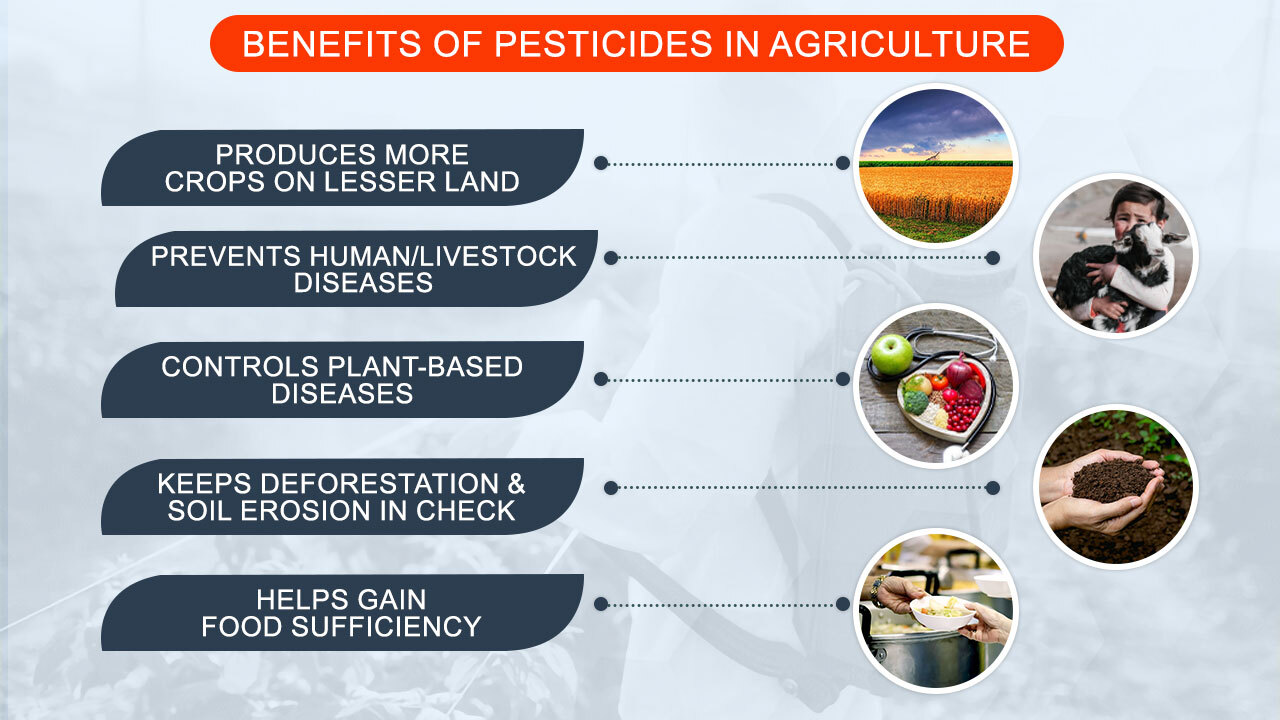WITHOUT CROP PROTECTION, INCLUDING PESTICIDES, MORE THAN HALF OF THE WORLD’S CROPS WOULD BE LOST TO INSECTS, DISEASES AND WEEDS.
Pesticides are important. They help farmers grow more food on less land by protecting crops from pests, diseases and weeds as well as raising productivity per hectare.
Production of major crops has more than tripled since 1960, thanks in large part to pesticides.1 For example, rice – which feeds almost half the people on our planet – has more than doubled in production. The amount of wheat has increased nearly 160 percent.
Without pesticides, more than half of our crops would be lost to pests and diseases.
All farmers use pesticides, including organic farmers. Whether from synthetic or natural sources, pesticides are used by all farmers. The difference is organic farmers can only use pesticides from natural sources. But both synthetic and natural pesticides have various levels of toxicity.
Without the use of pesticides, more than half of our crops would be lost to pests and diseases. Between 26 and 40 percent of the world’s potential crop production is lost annually because of weeds, pests and diseases.2 without crop protection, these losses could easily double.
Benefits of Pesticides
Food crops must compete with 30,000 species of weeds, 3,000 species of worms and 10,000 species of plant-eating insects. And threats don’t stop once crops leave fields – bugs, molds and rodents can all cause damage in storage. Pesticides can prolong the life of crops and prevent post-harvest losses.
Currently, about 925 million people around the world – one in seven of us – are going hungry. To reduce hunger, we need to increase food productivity. Pesticides help farmers do that.
Pesticides enable farmers to produce safe, quality foods at affordable prices. They also help farmers provide an abundance of nutritious, all-year-round foods, which are necessary for human health.
Fruits and vegetables, which provide essential nutrients, are more abundant and affordable. Grains, milk and proteins, which are vital to childhood development, are more widely available because of lower costs to produce food and animal feed.
Pesticides enable farmers to produce safe, quality foods at affordable prices.
Crop quantity and quality rely on crop protection. For example, a U.S. study estimated that without fungicides, yields of most fruit and vegetables would fall by 50-90 percent.3 Moreover, pesticides decrease exposure to food contaminated with harmful micro-organisms and naturally occurring toxins, preventing food-related illnesses.

.png)
.jpg)